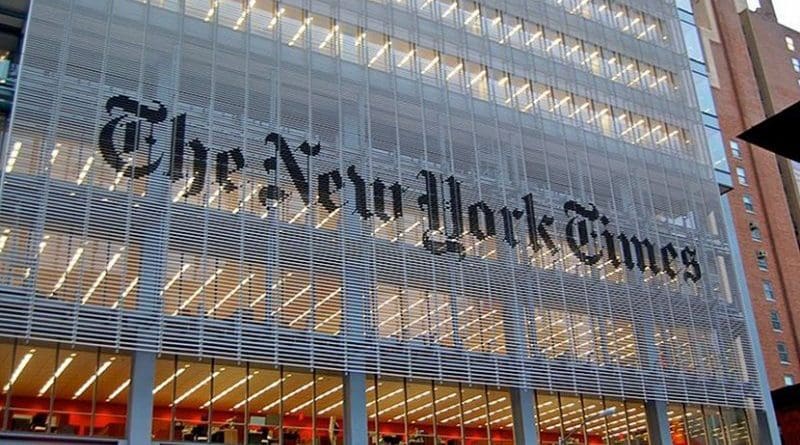The New York Times And NPR Rise To Defend The 1 Percent – OpEd
By Paul Woodward - War in Context
In a magazine feature for the New York Times, NPR’s Adam Davidson explains that credit cards are among the many amazing ways through which in America, thanks to Wall Street, the rich share their wealth with the poor!
Elsewhere, the Times offers a more “nuanced” picture of the one percent — heaven forbid that the wealthy might fall victim of crude stereotypes unfairly foisted upon them during cruel class warfare.
To my mind, both these institutions — NPR and the NYT — represent the most disgusting feature of America’s liberal elite: that it can profess an interest in the welfare of every American and at the same time defend the status quo.
Doug Henwood writes: For a while, I’ve been thinking about writing a piece on how NPR is more toxic than Fox News. Fox preaches to the choir. NPR, though, confuses and misinforms people who might otherwise know better. Its “liberal” reputation makes palatable a deeply orthodox message for a demographic that could be open to a more critical message.
The full critique will take some time. But a nice warm-up opportunity has just presented itself: a truly wretched piece of apologetic hackery by Adam Davidson, co-founder of NPR’s Planet Money economics reporting team, that appears in today’s New York Times magazine.
In the print edition, the thing is called “A World Without Wall Street.” For some reason, the paper’s web editors decided to call it “What Does Wall Street Do For You?” Maybe they thought that the question would draw in readers, who might find the declarative title of the print edition an appealing little fantasy and just turn the page.
Davidson concedes, with a mocking tone (that’s part of his straining at cool), that Americans have long hated Wall Street. But he rejects the usual complaints—that financiers are a bunch of bloodsucking parasites who periodically drive the real economy into a ditch—with the disclosure that finance is “a fundamentally beneficial business.” It brings together borrowers and lenders, a task that it does “extremely well”—“most of the time.”
Now I will be the first to argue that critiques of finance that let the “real” sector off the hook are incomplete, and even dangerous. (For more: “How to misunderstand money.”) The world of production can be a very nasty place. Corporations make money by paying workers less than the value of what they produce. They’re constantly maneuvering to cut costs, which means cutting pay, speeding up the line, dumping toxic waste in rivers, and a host of other familiar misdeeds. Like financiers, they’re in business to make money, and they’ll do nothing that doesn’t make money unless they’re forced to. Yes, they often provide useful products in the course of their pursuit of money. But it’s wrong to get carried away in painting them as the Good Guys, by contrast with the moneychanging Bad Guys.
But Davidson’s defense brief is incredibly wrong. I’d say “dishonest,” but I suspect he really doesn’t know better. [Continue reading…]

